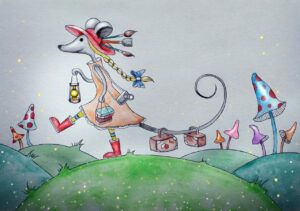Dialogue writing is one of the quintessential skills of an author. Dialogue writing is not an easy task as it is a mix of natural flow of conversation between two or more characters with different patterns of speech. Skilled authors know where to use dialogues and hook the audience in every possible way. Dialogue writing is a great way to move a story or plot line forward. Dialogues create inquisitiveness in the readers’ minds. They can create tension within the characters.Dialogues can break the ice/can make or break relationships/lead the characters to a vociferous argument and exhibit all kinds of emotions.
#1 Think of yourself as an actor –

To be proficient in dialogue writing, first you need to put on the shoes of the characters. Thus it can enable the flow of your oratory skills to pen down into dialogue. Record the informal way you talk and write down those into dialogues.
#2 Create suspense and not reveal everything
As a writer, never reveal everything in a single dialogue. Tease the audience with little information and let the readers build stuffs from their imagination and that’s the skill you need to build in dialogue writing. For example – here is the scene where Jason is angry with Bob.
Jason: Get me water bottle from the car.
Bob: Why you’re shouting at me?
Jason: You want me to stay thirsty, mate?
The above scene clearly reveals the situation of the scene where Jason is angry with Bob and conveyed the emotions through dialogues.

#3 Dialogues shouldn’t sound realistic
The dialogues from the characters should not sound like a normal/ideal communication. That’s where your creativity comes in picture. If you are putting a simple conversation between a couple of persons in your novel, you cannot hook your readers into your story no matter how strong plot line you have. Above all, you have to make the dialogue writing as animated as possible. Thus your audience can get immersed in your writing groove. It doesn’t need to be a clean verbatim always.
#4 Use Double meaning narratives in your dialogue
Dialogue writing must not always stem out as an authentic conversation. Readers should be flummoxed in comprehending the real intention of spoken characters and that adds suspense and curiosity on the readers as the character must have different or double meaning to what they communicating with other characters in the story.

#5 Observe people around you:
If you are caught in writer’s block, just take a stroll in busy street. Simply listen to the people walking round the streets. Observe them and see how two persons communicating each other, it can be happy tone, argumentative, silent conversation or a romantic one. You can get a hell lot of ideas from the common people around you- the way they talk, the jargon they use, their speaking dialects etc. Remember I’m not saying to eavesdrop them. Simply put your ears wide open while walking around the busy streets and comprehend your surroundings. Sounds good, huh?
#6 Entice your readers by hard hitting one liners
Hard hitting one liner works as best if you are not good in dialogue writing. You have often seen in story books, characters use one liner dialogues and it can set the novel to drive ahead and the potential reader gets glued to your book.
#7 Never exaggerate dialogue writing
Don’t exaggarate too much dialogues without coveying the essence of the plot. The readers might loose interest and turn off your story. It’s always wise to use optimum dialogue making the readers curious on the subsequent scenes. Dialogue can be written in the very beginning of the story and don’t start with cliched dialogues.
#8 Punctuation skills necessary

Writing dialogues requires strong command over punctuation skills for your readers to understand. If you mess with commas, periods, exclamations – your readers might shun your story.
Conclusion
It is not always imperative to have full of dialogues in your book to make the book enticing for the readers. However if you do use dialogues, you must follow the above mentioned tips to have enticing conversations between the characters of your story.





Listening to people is such a good tip for dialogue!
Dialogue is a make or break element that I use to judge a piece of writing. In terms of writing it, I definitely love acting it out in my head to get the voice and tone right.
That’s a great way to write dialogue. Thank you for stopping by Laura.